Blurb for All’s Fair In Love & Lion by Bethany Averie:
High school Junior year English teacher Sasha
Brighton has always dreamt of having her own Prince Charming. But she doesn’t
believe it’s possible. After all, fairy-tales are just stories, not reality.
However, when Monroe Dubay steps out of her dreams
and into her apartment, she’s forced to rethink the whole concept of what’s
real and what’s fairy-tale. But believing means she’ll have to choose between
everything she knows, or give it all up for the unknown.
Meanwhile, another female from his world doesn’t
think Sasha should have Monroe; and she’s prepared to do whatever it takes to
stop Sasha and Monroe from having their happily-ever-after. No matter what.
Amazon
Amazon
Half-In-Half
Writing & Character Plotting
by Bethany
Averie
Whenever anyone asks me about my writing
process, a .part of me panics. Partially because I always feel like I’m doing
it wrong, and partially .because in some cases, I draw a complete blank. I
can’t offer an exciting answer like the pantsers who say, “I just sit down and
write whatever pops into my head!” Nor can I offer detailed notes for every
character, scene, and plot development as a plotter might do. I’m what I
self-term a “half-in-half” writer. I part-plot, part-pantser my work. I don’t
know if it’s literally half-in-half, but it’s a mixture of the two.
There’s some plotting involved. I’ve got
my GMC worksheets for characters (Goal Motivation Conflict) where I also figure
out their physical attributes. However, this doesn’t mean I follow these things
down to the last word. I use them as direction, and let my imagination do the
rest.
For All’s Fair In Love & Lion, it
was almost completely a pantser experience. There was a sparkling of an idea
soon after I figured out where my writing niche was. When I remembered the
types of heroes and heroines I liked, off I went.
In hindsight, having a GMC worksheet
might’ve made the editing and revising process easier. I had so many notes in
so many places—on my computer, in notebooks, pieces of paper. I’m certain I
have way more notes for this novel than any other novel I’ve written. It was as
if I was afraid of forgetting something important.
Now when I write, I generally have 1 or
2 places for notes, and a GMC worksheet I can use (if I need to). My critique
partner, the incredibly talented and awesome, Tess St. John, gave me the idea
of going backward through my novel and writing a summary of each chapter to use
as reference as I edited. This worked well for AFIL&L. I was able to use
those notes to get to whatever scene I needed to without searching the entire
manuscript for it.
Monroe and Sasha were very pantser-ly
developed. From the moment I wrote the first chapter, I didn’t contemplate too
much what personality traits Monroe had, or Sasha had for that matter. It came
pretty quickly and easily. Then I entered editing, and I had to think more on
how to improve on them, which is another reason why I have my “half-in-half”
method. My GMC Worksheets give me a jumping off point, but my imagination still
has room to fill in the blanks.
When it comes to the complete pantser
approach, the idea of going in and just writing whatever makes me a little
nervous. Sure, some of my best ideas have come from those lightning strikes
while I’m writing, but I also know if I don’t have some kind of an outline I’ll
run out of steam. By the same token, I can’t imagine having nearly every single
word planned before I even write “Chapter One”. From my perspective, the
approach leaves little room for spontaneity. I’ve had a plotter contradict me,
telling me it wasn’t so. This author told me her stories have plenty of
surprises, but I can’t comprehend it. After all, if you know exactly what’s
going to happen then where’s the element of surprise?
However, every author is different. One
author’s technique is another author’s kryptonite. In the end, the author has
to decide for him or herself what will or won’t work. It’s rare two authors I
meet will have the exact same approach. The nice thing is, when you got a
variety of approaches you have different perspectives, which helps when you’re
receiving critiques or giving one.
I guess this means, I shouldn’t panic
over the question then, should I? After all, uniqueness is what makes each
author’s work stand out.
Whether you’re a reader or a writer,
enjoy being yourself. Being comfortable in one’s skin makes life a lot easier,
no matter what your career you have. Use your approach and talents to make life
awesome.
Happy reading and/or writing!
Bethany Averie Author
bio:
Bethany Averie is the second-to-the-youngest of eight
children. As a kid, she loved fairy tales, especially Cinderella and Beauty
& The Beast. Bethany still loves fairy tales, Greek & Roman
Mythology, and romance. She resides in the Lone Star State with her real life
hero, and a shadow who calls her ‘Mom’. When not writing, Bethany enjoys time
with family and friends and dreaming up new worlds. You can reach Bethany at
http://writebybethany.blogspot.com/ where she blogs about books, writing, and
whatever strikes her fancy. She can also be found on Twitter and Facebook.
Facebook
Author Page: https://www.facebook.com/BethanyAverie.Author
Blog: Write By Bethany http://writebybethany.blogspot.com/
Email: bethany.averie@gmail.com
Twitter: @WriteByBethany
Goodreads
Page: http://www.goodreads.com/user/show/14552945-bethany-averie-author-all-s-fair-in-love-lion-release
NWHRWA
profile page: http://nwhrwa.com/2013/05/08/bethany-averie/








































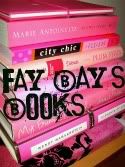



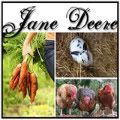
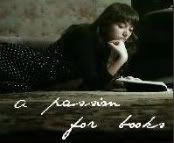

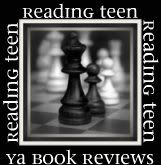


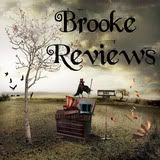



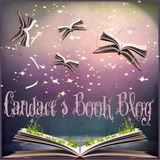




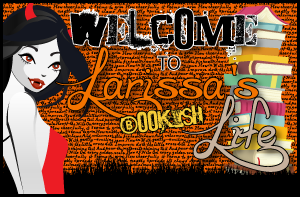

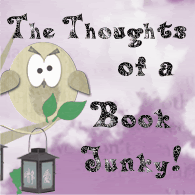



































3 comments:
Thank you so much for having me, Dana! I really appreciate it. :-)
I'm with you, Bethany. I need to have the basic plot figured out before I get much of the story written. I can start with a few character sketches, a scene or two, but without the A-Z plot, I wander too far afield and the story gets lost. Once I have the plot, I create a worksheet for the next scene and THEN I free-write my heart out. Thanks, fun post!
Jaye,
Yep, I think there's several authors that need at least some plan.
Thank you for dropping by and for commenting :-)
Post a Comment